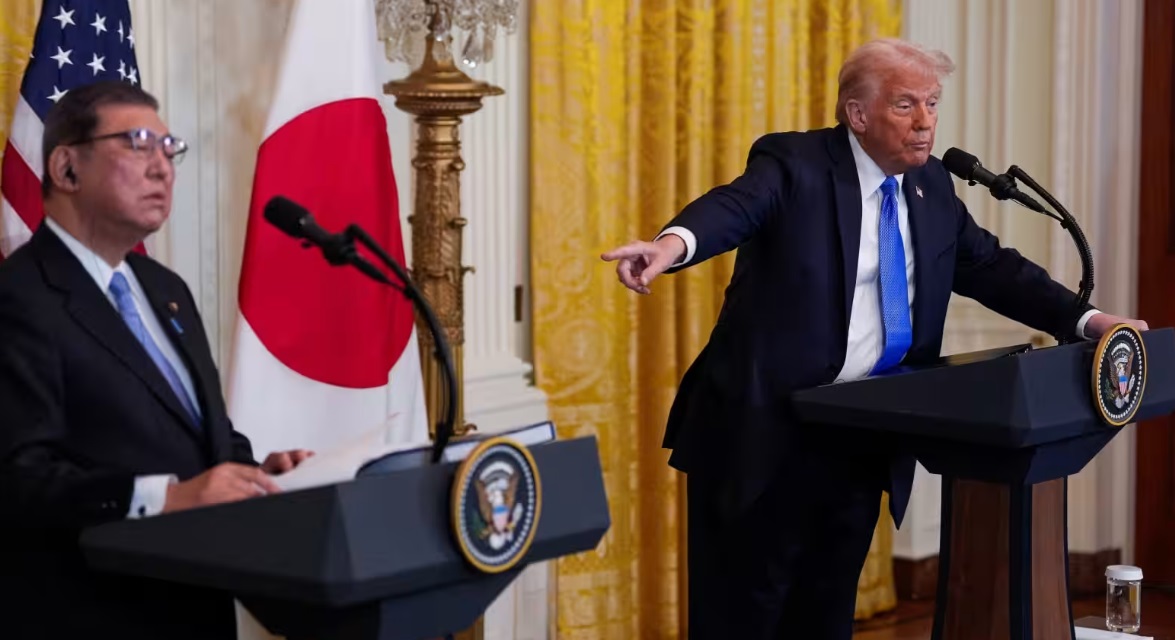 U.S. President Donald Trump holds a joint press conference with Japanese Prime Minister Shigeru Ishiba: “They should pay!”
U.S. President Donald Trump holds a joint press conference with Japanese Prime Minister Shigeru Ishiba: “They should pay!”
Photo: Reuters
Japan’s largest companies have said tariffs planned by the Trump administration could erode annual profits by tens of billions of dollars, with the probability of a bigger impact in the event of a US recession. Groups including Toyota, Sony and Mizuho could suffer a total hit as high as ¥4tn ($27.6bn), according to Financial Times calculations based on company guidance during the current full-year earnings season. The total could rise, with many companies refusing to provide estimates, citing “extreme uncertainty”, and some still to report, ‘The Financial Times’ writes.
Japanese car companies, as well as steel and aluminium producers, are subject to tariffs of 25 per cent on US imports, while other sectors have 24 per cent levies on their goods as part of President Donald Trump’s “reciprocal” tariffs.
The automotive industry, Japan’s biggest export sector, is the most exposed. In 2023, Japan shipped 1.5mn vehicles to the US, worth more than $40bn, and car manufacturers ship many vehicles and parts into the US from Mexico and Canada, which have also been stung by tariffs.
“The impact of tariff policies is huge,” said Toshihiro Mibe, chief executive of Honda, which predicted ¥650bn ($4.5bn) of extra costs and has slashed its investment plans to 2030 by ¥3tn ($20bn) to ¥7tn.
Toyota is the hardest hit, estimating an impact of $1.2bn in April and May.
The $27.6bn total was calculated by adding up tariff impact figures provided by the country’s top 100 largest groups by market capitalisation, car companies and others that cited a large impact, in their earnings presentations or calls.
Most of the estimates given by Japanese groups assume no measures to offset the charges such as a product price rise. When a range was given, the middle estimate was taken, and when the impact was said to be “several billions of yen”, it was assumed to be ¥3bn.
Many companies said they could take countermeasures to soften the impact by raising prices or shifting more production to the US.
A lengthy period of tariffs would probably mean a much larger financial hit, with leaders of many companies saying no reliable estimate could be provided, given the volatility and uncertainty over their implementation.
There is also a risk that Japan’s economy could be steered further off course. Figures released showed Japanese GDP turned negative in the January-to-March period from the previous quarter, even before the US tariffs had begun to show in the export numbers.
read more in our Telegram-channel https://t.me/The_International_Affairs

 10:24 25.05.2025 •
10:24 25.05.2025 •






















